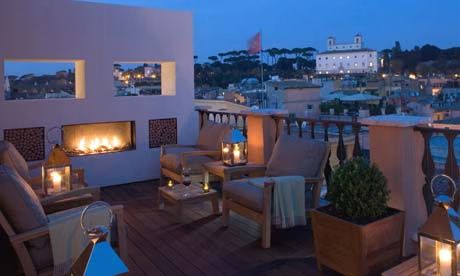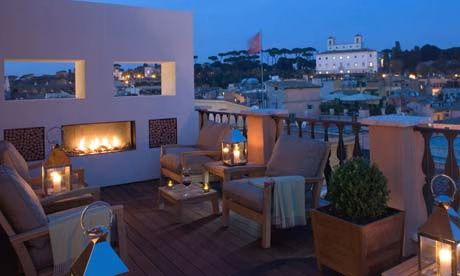Rome, the Eternal City, is not only one of the most visited capitals in Europe but also a global symbol of history, culture, and hospitality. Hotels in Rome play a crucial role in shaping the travel experience of millions of visitors every year. From small boutique accommodations near the Colosseum to larger international chains in modern districts, the hotel landscape of Rome reflects both tradition and innovation.
The interest in Rome hotels has grown as tourism has rebounded in recent years, with travelers increasingly seeking information about the variety of stays, cultural influences on hospitality, and modern travel tools that simplify the decision-making process. This guide aims to explore the details, offer tips, and provide a clear overview to help travelers make informed choices.
Importance
Hotels in Rome are more than just accommodations; they act as cultural gateways that connect visitors with the city’s heritage. Choosing the right hotel influences:
-
Proximity to historical sites like the Vatican, Roman Forum, and Trevi Fountain
-
Accessibility to transportation hubs such as Termini Station and Fiumicino Airport
-
Comfort, amenities, and hospitality experience
-
Safety and compliance with Italian tourism standards
This topic matters today because Rome continues to attract diverse travelers—families, couples, solo explorers, and business visitors. As international tourism grows, the demand for information about hotel trends, traveler expectations, and sustainable practices also rises.
Recent Updates
In the past year, several developments have shaped the Rome hotel industry:
-
Sustainability focus (2024–2025): Many hotels in Rome have adopted eco-friendly initiatives such as reducing single-use plastics, installing energy-efficient systems, and promoting local sourcing for food and amenities.
-
Digital booking growth (2024): Online platforms and mobile applications have made it easier for travelers to compare options, read verified reviews, and access maps.
-
Cultural tourism programs (2025): New city-led initiatives encourage hotels to promote cultural activities like guided heritage walks, food experiences, and art exhibitions.
-
Traveler demographics (2024–2025): Data shows that more younger travelers (ages 18–35) are choosing boutique hotels, while families prefer larger properties with comprehensive facilities.
These updates highlight how Rome’s hospitality sector is adapting to modern traveler needs while preserving its traditional appeal.
Laws or Policies
Hotels in Rome are regulated by Italian and European laws that ensure safety, transparency, and quality standards:
-
Tourist Tax (Imposta di Soggiorno): Visitors staying in hotels must pay a nightly city tax, which varies depending on the hotel category. This revenue supports the maintenance of Rome’s cultural heritage.
-
EU Tourism Regulations: Rome hotels must comply with EU consumer protection laws, ensuring clear information about accommodation, pricing, and cancellation policies.
-
Safety Standards: Hotels follow fire safety, hygiene, and accessibility rules set by Italian authorities.
-
Sustainability Incentives: Government-backed initiatives encourage hotels to adopt eco-friendly practices, offering tax benefits for energy-saving upgrades.
Understanding these policies helps travelers prepare for what to expect during their stay and contributes to responsible tourism.
Tools and Resources
Modern tools and resources make exploring Rome hotels more accessible. Some helpful options include:
-
Hotel Search Platforms: Booking.com, Expedia, and Google Hotels for comparing stays
-
Travel Apps: Rome2Rio for transport connections, TripAdvisor for reviews, and Google Maps for location insights
-
Tourism Websites: Official Rome Tourism Portal for updated travel news
-
Cultural Guides: Online resources offering detailed history and neighborhood guides
-
Currency and Budget Calculators: XE Currency Converter or Wise travel calculator for financial planning
These tools assist travelers in researching, planning, and navigating their Rome trip more effectively.
Comparing Hotel Types in Rome
| Hotel Type | Key Features | Best For | Examples of Location |
|---|---|---|---|
| Luxury Hotels | High-end amenities, central locations | Couples, luxury travelers | Via Veneto, Piazza Navona |
| Boutique Hotels | Personalized design, unique style | Young travelers, solo trips | Trastevere, Monti |
| Family Hotels | Larger rooms, child-friendly services | Families with kids | Termini area, Vatican |
| Budget Hotels | Affordable, basic comfort | Backpackers, students | Near Termini Station |
| Historic Hotels | Classical architecture, vintage charm | Culture-focused travelers | Centro Storico |
This variety ensures that every type of traveler finds a suitable option aligned with their needs.
Travel Insights and Practical Tips
-
Book in advance during peak seasons like Easter, summer, and Christmas to secure central locations.
-
Check for local authenticity by exploring hotels with Roman décor, architecture, or partnerships with local artisans.
-
Use maps to assess distances to main attractions, as “close to the Colosseum” can vary significantly.
-
Review recent traveler insights instead of relying only on old reviews, since facilities and management often change.
-
Understand the city tax and include it in your budget planning.
These insights help create smoother travel experiences and reduce last-minute complications.
Frequently Asked Questions
What is the average tourist tax for hotels in Rome?
The tourist tax ranges between €3 and €7 per person per night, depending on the hotel’s rating and location.
Are hotels in Rome generally safe for international travelers?
Yes. Hotels follow strict safety and hygiene standards, with 24/7 reception in most central properties.
Which areas in Rome are best to stay in?
Popular choices include the Centro Storico for history, Trastevere for local charm, and Termini for budget-friendly stays.
Do Rome hotels offer eco-friendly options?
Yes. Many hotels now promote green initiatives such as recycling, energy efficiency, and eco-certified cleaning products.
Is English widely spoken in hotels across Rome?
Yes, especially in central and tourist-heavy areas. Smaller boutique hotels may use more Italian, but basic English is common.
Conclusion
Exploring hotels in Rome requires more than just browsing lists it involves understanding cultural context, policies, recent updates, and traveler preferences. From luxury stays near iconic landmarks to budget-friendly options around transportation hubs, the variety of choices reflects Rome’s blend of tradition and modernity.
By using the right tools, being aware of regulations, and applying practical tips, travelers can make well-informed decisions that enhance their overall experience in the Eternal City. Hotels are not just places to rest; they are integral to discovering Rome’s charm, heritage, and way of life.

